Written in partnership with Lundbeck and Keith and Linda Hall
Not only do Keith and Linda Hall fully embrace the Davis Phinney Foundation’s mission of living well, but they make it their goal to help others live well too. In addition to being active members in the Parkinson’s fitness communities in their hometown, the Halls help spread awareness about neurogenic orthostatic hypotension (nOH) in Parkinson’s communities through a program called nOH Champions. About one out of five people with Parkinson’s disease may also have symptoms of nOH, but these symptoms are usually considered to be a part of Parkinson’s, and not seen as a separate, manageable condition.
Hi Keith and Linda, thank you for being with us today. What is neurogenic orthostatic hypotension (nOH) and what is your experience with it?
Keith – nOH is a feeling of lightheadedness and dizziness upon standing. It could even feel like fainting upon standing. I had a dramatic introduction to nOH. Walking up the stairs one day, I felt myself floating backwards. Since then, I have had several bouts of dizziness.
How long after you were diagnosed with Parkinson’s did the nOH symptoms begin?
Linda – Keith was diagnosed with Parkinson’s almost 11 years ago and with nOH about one year ago. But even a year before the diagnosis, we noticed symptoms. We were on a European trip doing a World War II tour, and after getting off a long bus ride, Keith almost fell down upon standing. Luckily, our son was there to catch him and prevent him from hitting the ground! He also was walking up a narrow flight of stairs in a historic house in France and started to feel woozy. Keith can walk a distance, and his gait is fine. But there seems to be two triggers to the nOH symptoms: getting out of a vehicle after a long ride and going up the stairs.
Keith – There was another time we were at New York Yankee stadium. It was filled with 60,000 people and while walking up the stairs, I started to feel dizziness and lightheadedness. That’s when I realized this was a potential problem.
How did you receive a diagnosis of nOH? Was it difficult?
A movement specialist introduced us to the condition and gave us more information about it. It’s a lesser-known condition, and we had not heard about it before this.
What difference has nOH made on your day-to-day?
Keith – There are several things I do to manage my nOH symptoms. In addition to working with my doctor on a treatment plan, I have a few tips and tricks for handling my symptoms. First, I don’t rush getting to my feet. For example, getting out of bed, I prepare myself for the change and will get up more slowly. I also acknowledge that warmer temperatures and climates can affect my symptoms. And I make sure to drink plenty of water. But everyone’s experiences may be a little different, so it’s important to talk to your doctor about the best way to manage symptoms.
What do you wish people knew about nOH?
Keith – There are two things I want the Parkinson’s community to know about nOH. First, nOH is a separate condition from Parkinson’s, but it can affect one in five people with Parkinson’s, so it’s really important that the Parkinson’s community is aware of it. So often, people think the symptoms of nOH are part of the Parkinson’s progression, and it doesn’t get properly managed. Second, it is necessary to work with your doctor or a specialist, such as a neurologist or a movement disorder specialist, on an individual management plan. What works for one person may not work for another.
Can you give us more details on the program you have recently joined, nOH Champions?
Linda – We decided to join the nOH Champions program because many people aren’t aware of nOH, and they think it’s part of their Parkinson’s. But by getting a diagnosis of neurogenic orthostatic hypotension (nOH), people can work with their doctor on a treatment plan to manage the symptoms. Being nOH Champions, we have the opportunity to meet and talk with the Parkinson’s community about nOH and how the symptoms have affected Keith. It’s been great connecting with the Parkinson’s community outside of our hometown and sharing our story!
You are very involved in the fitness community in your hometown. Are you able to maintain your fitness routine with Parkinson’s and nOH?
Keith – I’ve made adjustments due to my changing physiology, but I remain dedicated to my fitness and working with others to maintain a fitness routine. With nOH, I can’t be too strenuous, but I still make exercise a priority. Physical fitness will always be important to me. I make sure to build my day around it, and there’s a big social component too. I’ve been lifting with the same guys for over 30 years!
To learn more about the impact of nOH on people with Parkinson’s and their care partners, read results from the Harris Poll Survey here.
About Keith and Linda
Keith and Linda currently live in Massachusetts. Keith is a retired pilot, and Linda is a former teacher. They have one son, Max.
To learn more about neurogenic orthostatic hypotension, visit www.nohmatters.com. To learn more about the nOH Champions program, visit www.nohchampions.com.


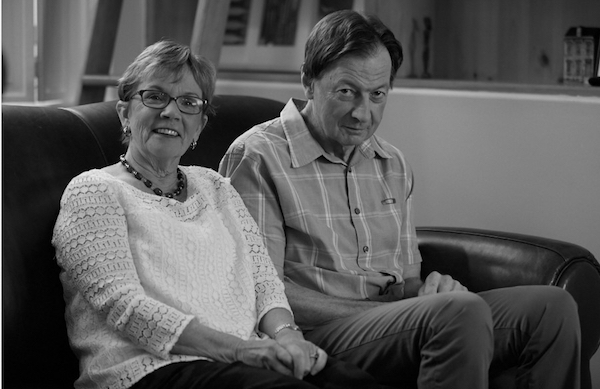
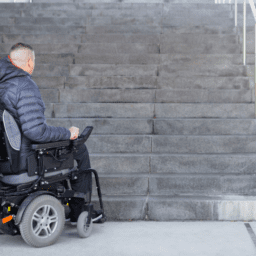


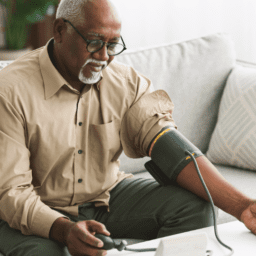



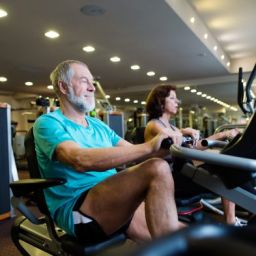
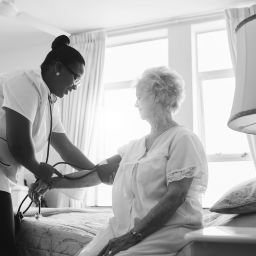

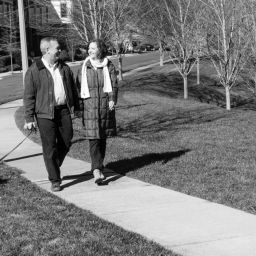
My mom had PD for over 20 years. And after having PD many, many years, at the nursing home she was in, she was passing out and fainting lots of times. And she was complaining of chest pain. Her doctor put her in the hospital every time she passed out and fainted, but he didn’t realize she had NOH. She passed away in December 2015 twelve days before her 87th. birthday. I wish her doctor had diagnosed her NOH and had given her surgery for a pacemaker before the NOH caused her death. Her doctor failed to diagnose her NOH! She was the Sweetest, Kindest, Most Loving Mom I could have ever hoped for! I Love Her So Much and will Miss Her Forever!!! Love My Mom with All My Heart Forever and Evermore!
We’re so sorry to hear about the loss of your mother, Joan. nOH is a common symptom in Parkinson’s but if not treated appropriately, it can cause dizziness or light-headedness which can cause damaging falls in your environment. You can learn many steps to help manage your nOH, from this blog post and by communicating and key indicators to your doctor at your next neurology visit.
I have been diagnosed with Multiple System Atrophy with Parkinsonian features. I have nOH
and profuse sweating triggered by cold temperatures and stress. If anyone has information or experience with similar conditions I would appreciate communicating with you.
s
Thank you for your comment, Glen. Profuse sweating can sometimes be a side-effect of certain medications and should be communicated to your doctor. I encourage you to read more about managing nOH symptoms by clicking in this link.